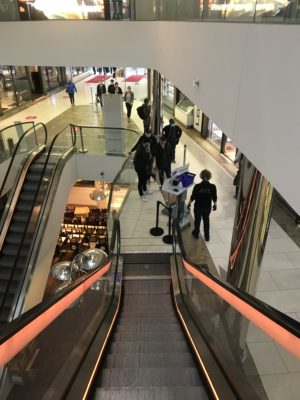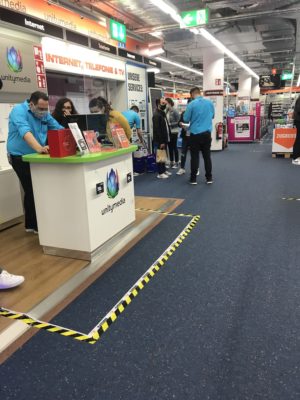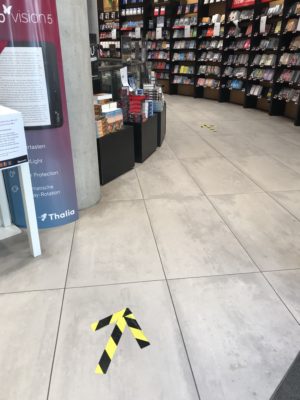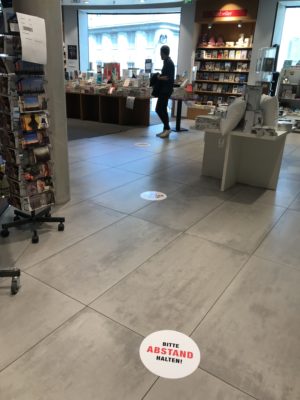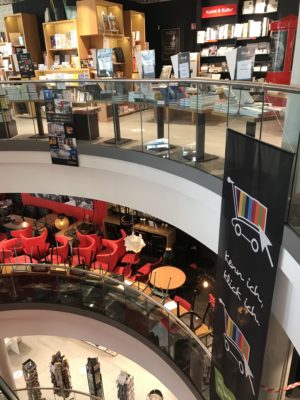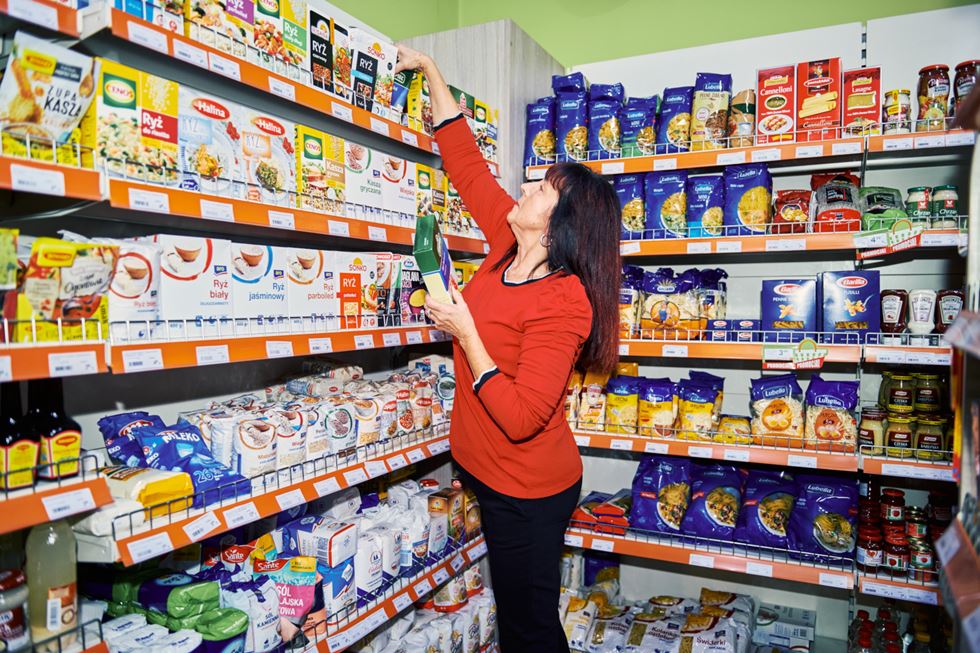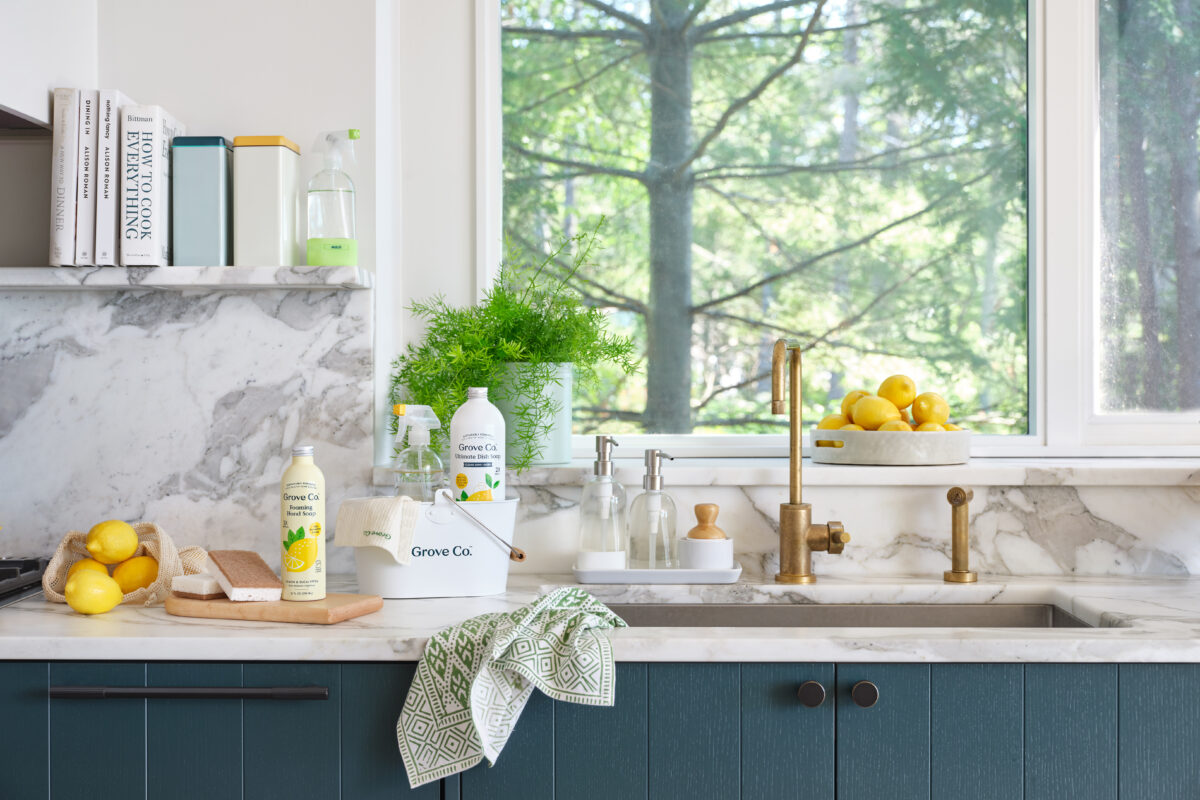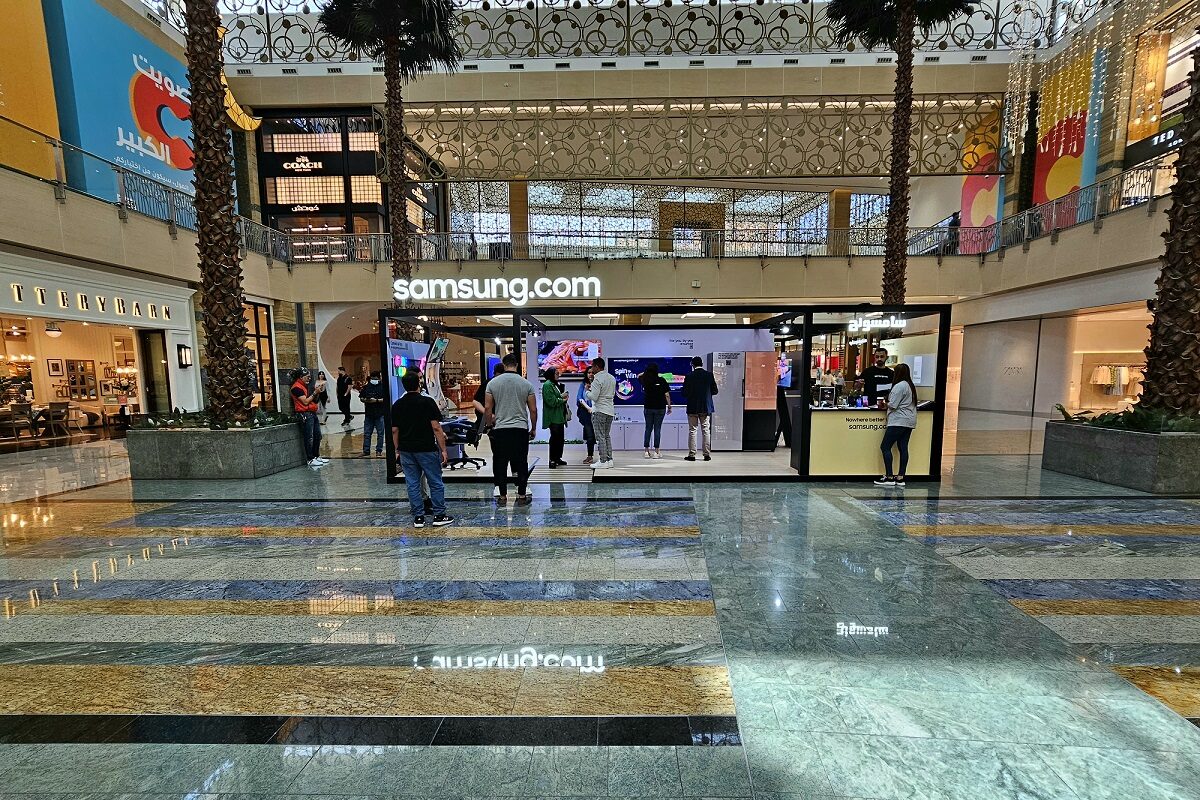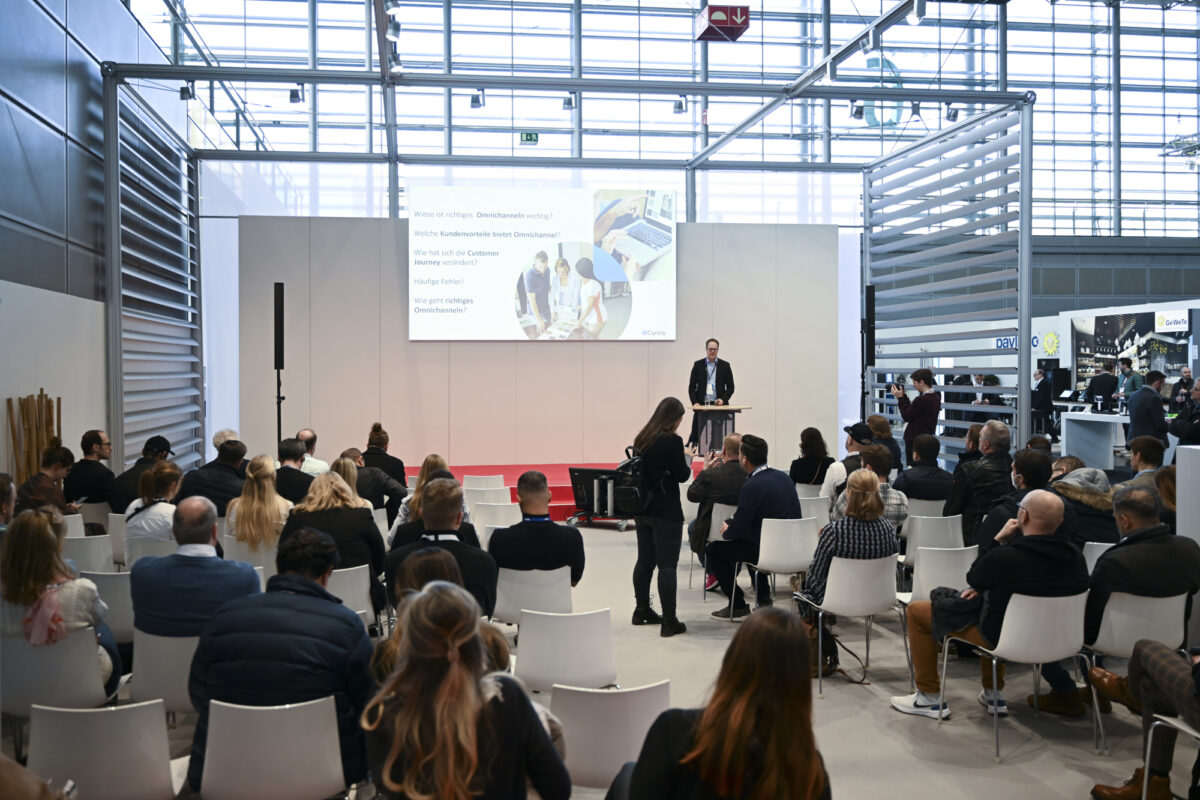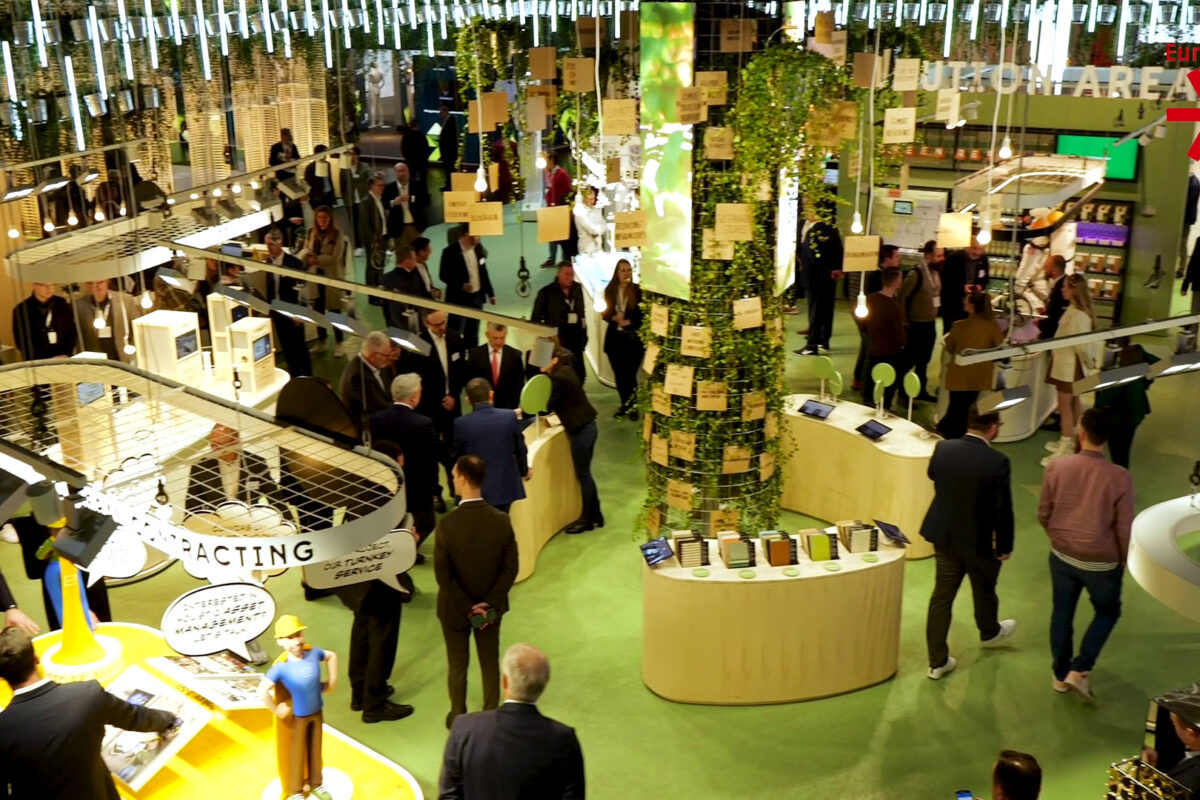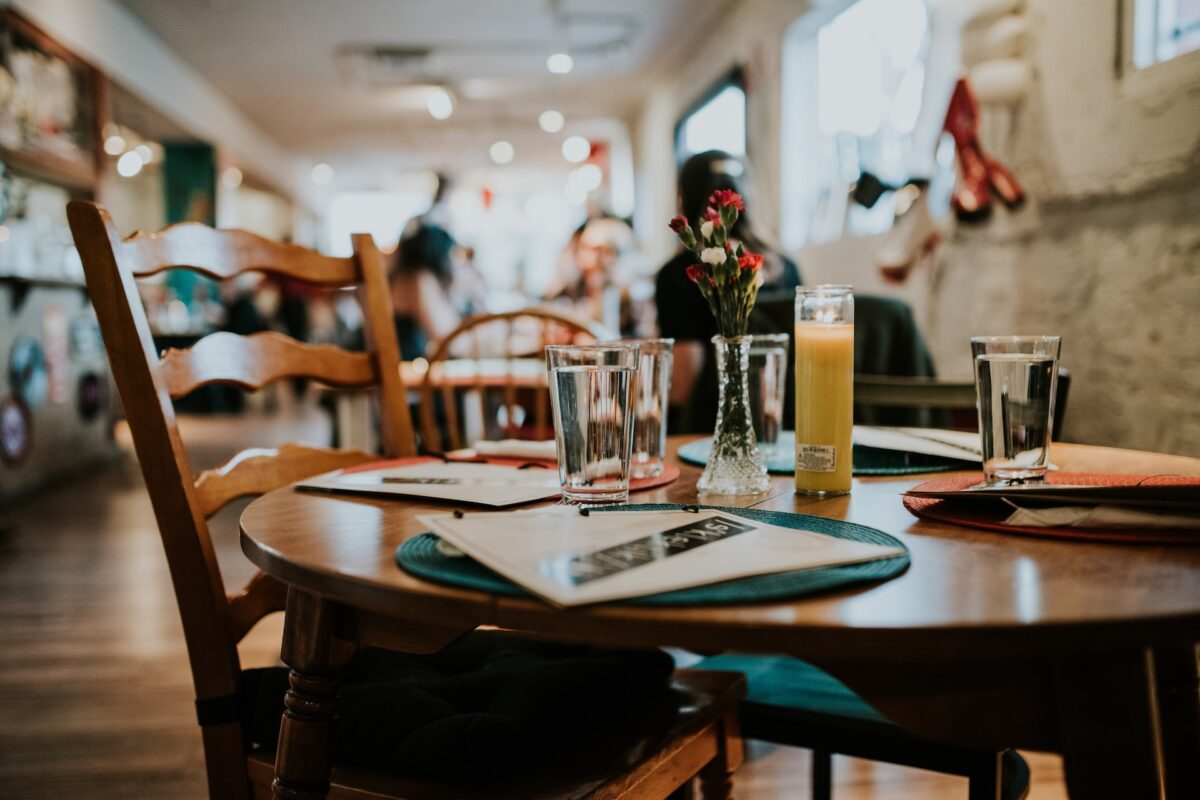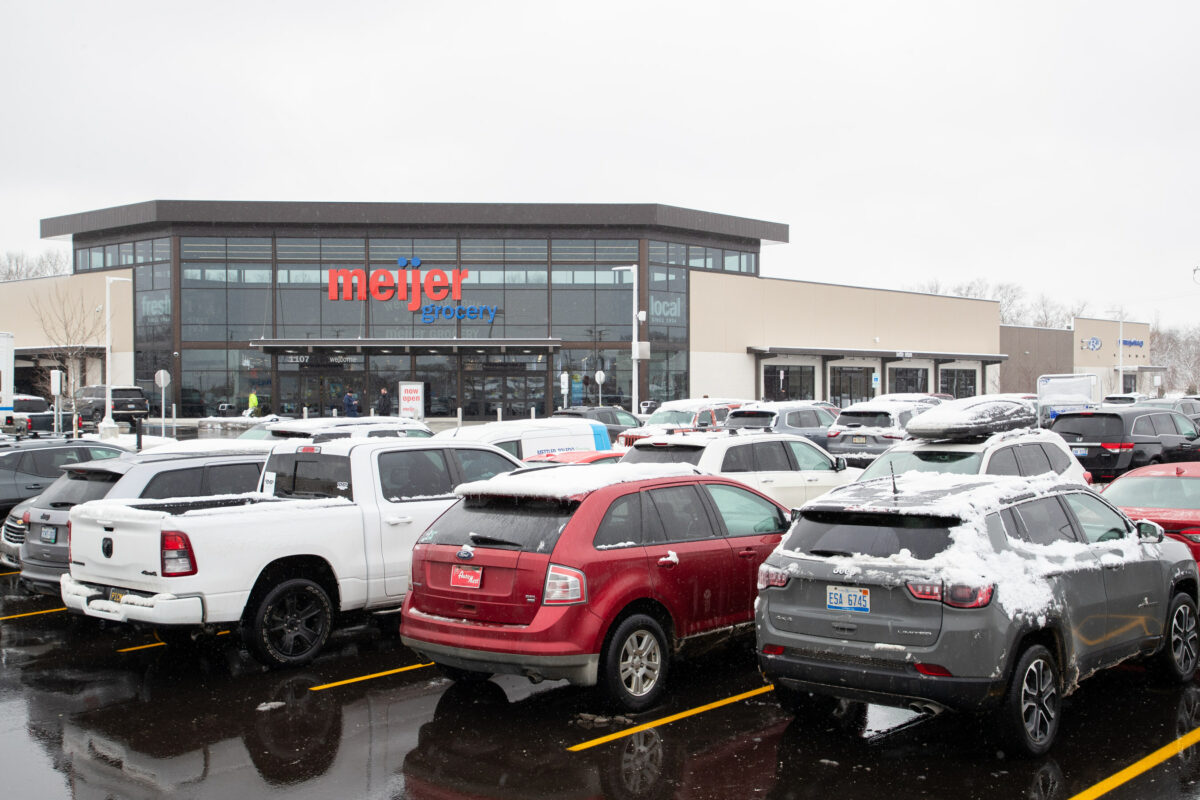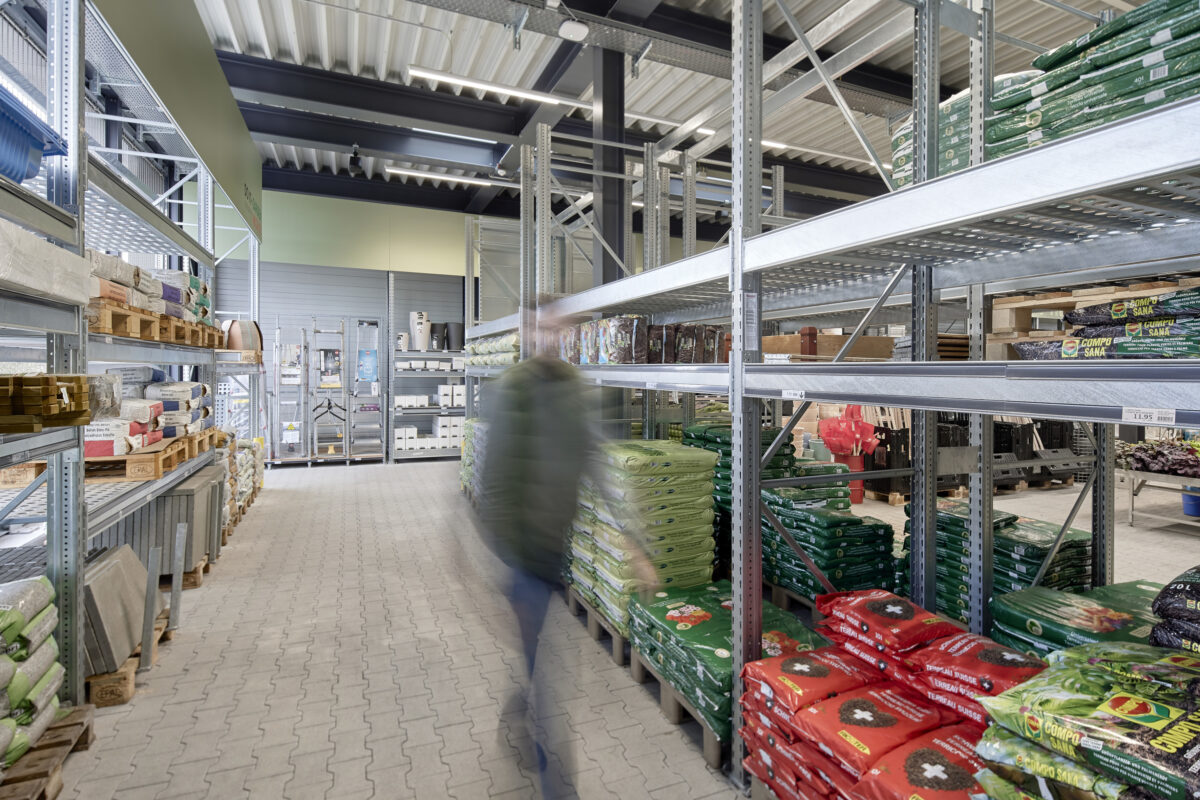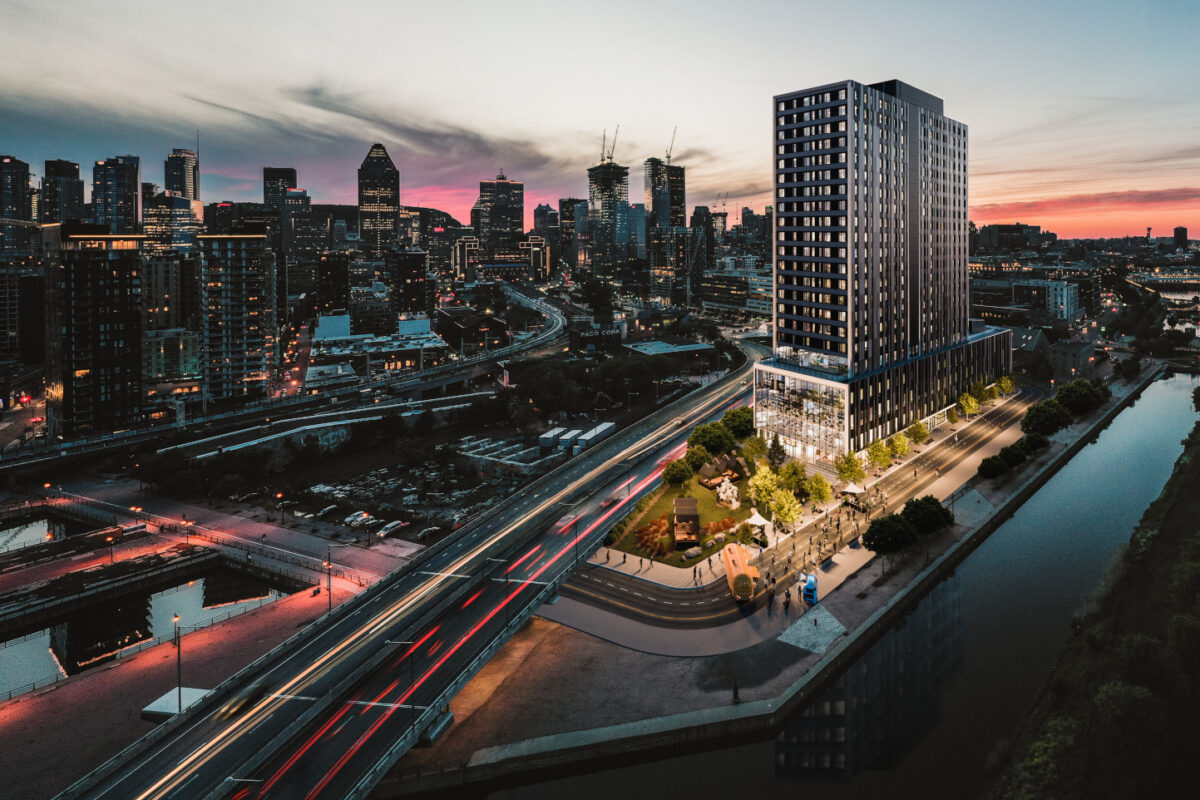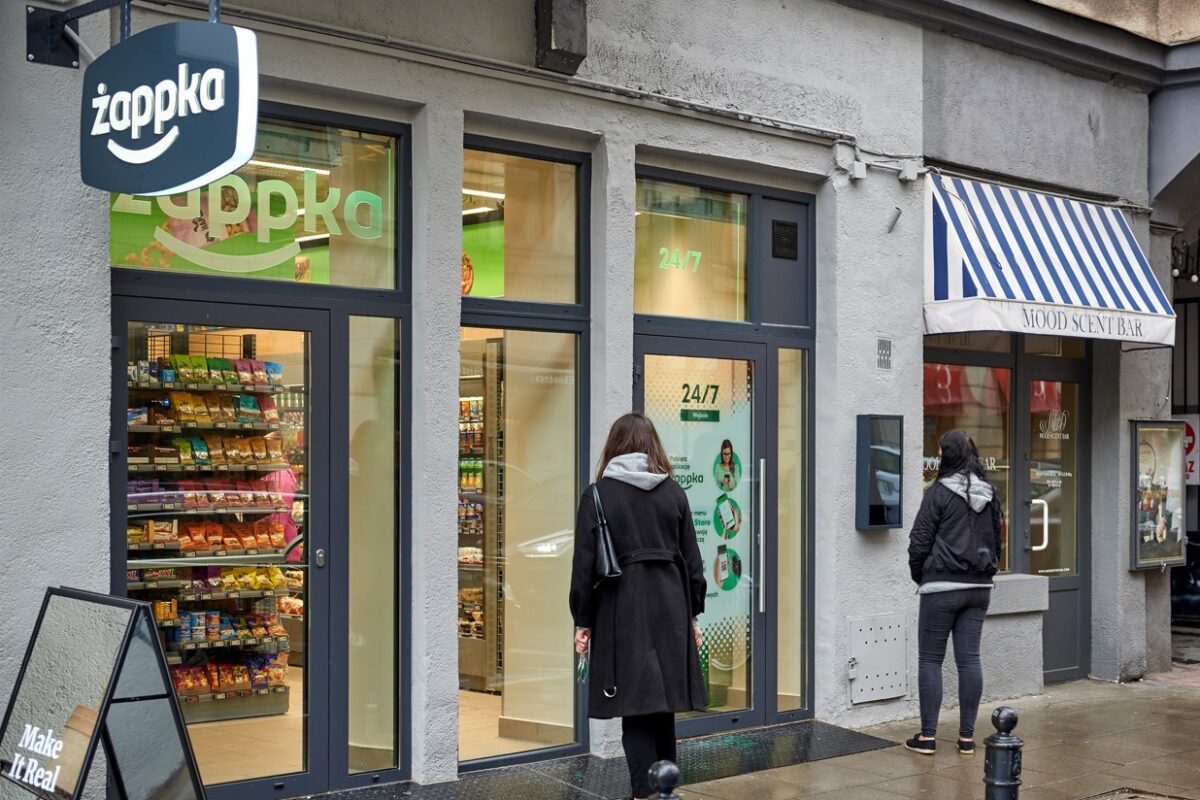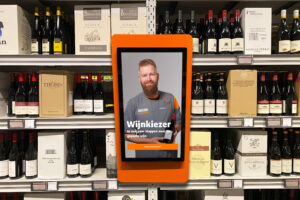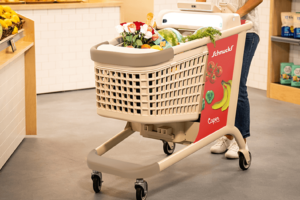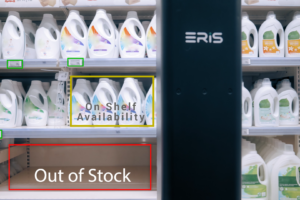by Illona Marx (exclusively for EuroShop.mag)
Getting back to normal, one step at a time. Since mid-March 2020, the retail trade has been in a state of emergency. With the exception of shops providing essential goods and services such as supermarkets, pharmacies, opticians and drugstores, all shops remained closed, and the city centres were as empty as ghost towns. And it became more and more clear: the virus that has the world firmly in its grip will continue to dominate everyday life. Only with extreme caution, a great deal of discipline and a sense of proportion will it be possible in the coming months to at least begin to return to the life we enjoyed before the pandemic.
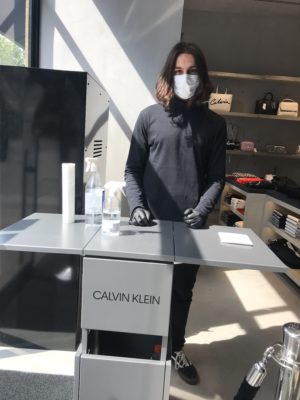
Verantwortungsbewusster Empfang bei Calvin Klein. Jeder Kunde wird gebeten, sich die Hände zu desinfizieren. © Ilona Marx
On 15 April, Germany’s federal and state governments decided on the first relaxation of the corona restrictions. This included the reopening of all shops with up to 800 square metres of sales space from 20 April. Furniture stores, bookstores, car and bicycle dealers and stores selling products for babies are excluded from the 800-square-metre rule in North Rhine-Westphalia. They could reopen their doors regardless of size. However, strict hygiene regulations apply everywhere. And no more than one customer per ten square metres of space is currently permitted. The latest regulations
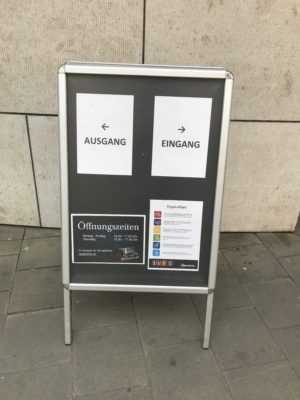
Klare Kommunikation von Anfang an bei der Meyerschen Buchhandlung. © Ilona Marx
also give larger stores the opportunity to welcome their customers back – by separating the specified maximum area from the rest of the store. We set out on a retail observation tour in Düsseldorf to sound out the current situation and see what solutions retailers are using to meet the new conditions.
Commitment, responsibility and patience
On the first day of the relaxation, many people poured into German city centres, a response that was particularly noticeable in North Rhine-Westphalia. According to the economic research institute IfW, the volume of foot traffic in Düsseldorf was already 45 percent of the level expected under normal circumstances on working days. In the following week, according to the retailers surveyed, the frequency flattened out at the same time as the compulsory wearing of facemasks was introduced in North Rhine-Westphalia on 27 April, but then picked up again on the first weekend in May. Queues formed in front of the larger stores, for example at the consumer electronics store Saturn, located in the shopping centre Sevens on the city’s elegant, high-end shopping street Königsallee: before customers were allowed to enter the only open store of the five floors, they were given a DIN A5-sized sheet of paper with a number on it in a transparent plastic sleeve. The staff disinfected these in front of the eyes of the waiting shoppers. The numbering ensures that the volume of customers present does not exceed the 80 permitted for the area.
Then it was time to queue again on the open floor itself. There, the employees called the customers individually and assigned them to the consultants: Only a fraction of the goods are displayed there, the most important sales tool at present being the terminals, termed smart bars, where customers are advised on-screen. The staff showed great commitment, and were obviously glad to be able to get back to their jobs after a break of several weeks. A spokeswoman from Saturn MediaMarkt assessed the situation as follows: “As retailers, we are accompanying this first phase of the gradual reopening with great responsibility and deliberation. Consequently, we have made intensive preparations to make shopping as pleasant as possible. However, security is the top priority, so the most important thing is the wellbeing of our customers and employees. For this reason, we do everything in our power to consistently implement and adhere to the numerous protective and hygiene measures in our stores”. These include clear plastic separators installed in the checkout, information and service areas, as well as at the smart bars and the goods issue area, and extensive signage and instructions on keeping distance. “The customers here are in a very positive mood and behave in an exemplary manner, even if there are relatively short waiting times or queues in front of the stores at times. However, it has been shown that our safety concept works very well and that distance and hygiene standards are easily maintained”.
Creative communication
The fashion retailers Zara and H&M are also addressing hygiene regulations and distance rules with their own safety concepts. While H&M restricts itself to opening up the ground floor, keeping the changing rooms closed and regulating the number of customers by handing out a limited number of disinfected plastic rings, Zara has opened the changing rooms and has a staff member at the door to count customers. Here, however, the space on the ground floor had to be partially cleared, as the floor space of the branch on Königsallee already exceeds 800 square metres. The empty area was sealed off with a red and white plastic band, a short-term makeshift measure that can be seen in other large department stores as well.
The traffic was very low at both fashion stores. A company spokeswoman from H&M commented on the current situation: “We have been working intensively for weeks in all areas of the company to pick up on the latest developments, taking into account people, business and the environment, and to adapt them in the best possible way – including the reopening of our stores. We are also doing this in those federal states where we can minimise the total sales area in our stores to the benchmark of 800 square metres. We are adapting the sales area by means of barrier tapes and the conversion of movable walls. It goes without saying that we keep escape routes clear and comply with fire safety regulations. Being safe, again, is our primary goal here”. With signs at the entrance and in the sales area as well as floor stickers, the Swedish high-street fashion giant reminds people to keep a distance of at least 1.5 metres. At the same time, the stickers are used to shorten the perceived waiting time with information about the company. “We are proud that 7 out of 10 managers at H&M are women”, it says, or: “From 2020 on, 100% of our cotton will come from sustainable sources”.
Fewer restrictions, but lots of sound judgment
A different creative approach is taken in the book trade, which, although not subject to any size restrictions in Düsseldorf, has nevertheless taken comprehensive measures. In the Mayersche bookstore on Königsallee, a single path through the store has been established so that customers are guided in a way similar to the IKEA furniture stores. “We have placed colleagues at the entrances who instruct customers on the tour. The disinfection spray at the entrances is well received. Of course, we also regularly disinfect the touchscreens of the e-readers, which are available for testing”, says a division manager. Theoretically, 380 customers are permitted to shop on the 3800 square metres of floor space, but caution is still advised. “If the colleagues on the individual floors notice that it’s getting too crowded, they call the ground floor and we wait with further admissions until the situation has eased again”.
“Difficult” products, simple solutions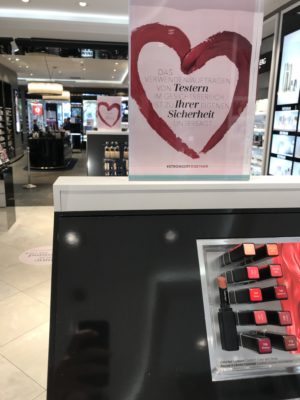
Perfume boutiques have to create special conditions, which go far beyond the precautionary measure of area limitation, in the current situation.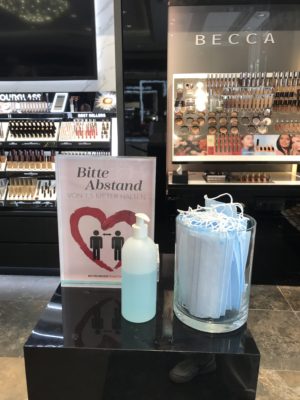 The large Douglas store on Königsallee is not only responding to the crisis with guidelines and barriers in the checkout area, with free masks, disinfectants and restrictions on personal access, but has also imposed strict regulations on the shopping process itself. For example, creams may only be taken from testers with cotton swabs, and make-up and lipsticks may only be tried on paper towels. A matter of course actually in the current situation, but nevertheless this example shows that there can be a (sometimes simple) solution even for the sale of “difficult” products.
The large Douglas store on Königsallee is not only responding to the crisis with guidelines and barriers in the checkout area, with free masks, disinfectants and restrictions on personal access, but has also imposed strict regulations on the shopping process itself. For example, creams may only be taken from testers with cotton swabs, and make-up and lipsticks may only be tried on paper towels. A matter of course actually in the current situation, but nevertheless this example shows that there can be a (sometimes simple) solution even for the sale of “difficult” products.
The German retail trade is currently proving that a talent for improvisation and flexibility are among its virtues, that the sector’s decision-makers don’t bury their heads in the sand, but rather develop their own initiatives. And perhaps the 800-square-metre rule will be a thing of the past in a few days, as it is in Baden-Württemberg, and the retail trade will be able to take the next step back to normality.




